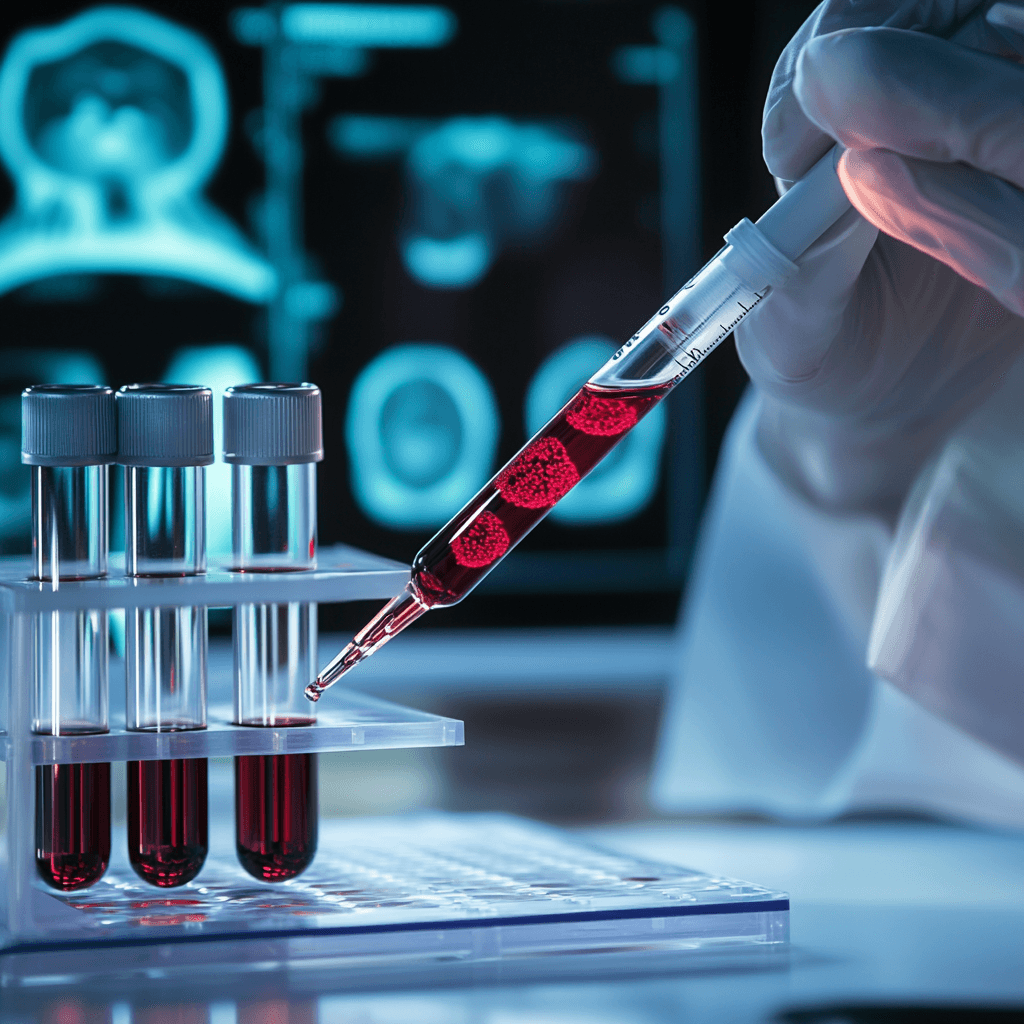
One of the most serious barriers for figuring out how to study Alzheimer’s disease and devise new ways to treat it is the fact that the disease can start killing off brain cells at least fifteen years or more before any symptoms – like memory problems -- become obvious.
That’s one reason why researchers have been furiously working to figure out what chemicals show up in your blood early in the disease process before symptoms show up. And they’ve made a new discovery that is redefining the disease…
Key Takeaways
- Alzheimer's disease can start damaging the brain many years before symptoms show, highlighting the need for early detection.
- Researchers are identifying biomarkers in the blood that could indicate Alzheimer's disease before cognitive decline is evident.
- Many primary care doctors struggle to diagnose Alzheimer's due to various challenges, emphasizing the need for reliable blood tests.
Understanding Biomarkers of Early Alzheimer’s
Researchers have been focusing on these “biomarkers” to make it possible to develop blood tests to scan for these substances. The goal, of course, is to discover as early as possible whose brains have been silently succumbing to dementia.
Moving ahead with the idea of identifying reliable biomarkers of Alzheimer’s disease, researchers at the Mayo Clinic say that they are ready to classify this type of dementia as a process that certain biomarkers can reveal before the signs of cognitive breakdown arise. [1]
As Clifford Jack, MD, a neuroradiologist at Mayo, points out, "Defining diseases biologically, rather than based on symptoms, has long been standard in many areas of medicine — including cancer, heart disease and diabetes — and is becoming a unifying concept common to all neurodegenerative diseases.” [2]
Dr. Jack, who is part of a workgroup at Mayo cooperating with the Alzheimer’s Association to define these biomarkers of Alzheimer’s, also notes -- “Alzheimer's pathology, which we consider represents Alzheimer's disease, begins to appear in the brain at least 15 to 20 years prior to the onset of symptoms.”
Despite the published reports about the biomarkers that Dr. Jack and his fellow Mayo researchers have identified, don’t expect tests for them to be available very soon. According to Dr. Jack, they’re not ready for prime time. While he thinks they’re good for research studies, they’re not foolproof enough to be used by the general public. That’s in the future.
Is It Alzheimer’s or Not?
Aside from enabling medical folks to diagnose Alzheimer’s disease in an early phase, other researchers note that mainstream healthcare providers are badly in need of clearcut blood tests for Alzheimer’s and other types of dementia.
They warn that many primary care doctors, the physicians that most people visit, are pretty hopeless when it comes to diagnosing Alzheimer’s disease. (My reaction to this is: No kidding!)
For instance, in reviewing the progress made in developing these blood tests, scientists at Baylor were aghast at how poor the chances are of getting your cognitive issues properly diagnosed by the average doctor.
The Baylor review says that the reasons that doctors mess up these diagnoses include: [3]
- Doctors are too rushed to make the right diagnosis: Nowadays, doctors are under time constraints to get patients in and out of the office in a hurry.
- Doctors often don’t recognize the signs of early cognitive problems: A study by the Veterans Administration found that “Physicians are unaware of cognitive impairment in more than 40% of their cognitively impaired patients.”
- Doctors don’t want to tell patients they have cognitive issues: Physicians often believe telling patients about having Alzheimer’s or some other cognitive difficulty does more harm than good. And patients’ frequent denial of their own memory issues makes them partners with their healthcare providers in making them believe there’s no problem.
It’s ironic that, according to the Baylor researchers, younger doctors are generally better at identifying cognitive problems than older doctors. But older doctors are more confident in their ability to identify dementia!
Our Takeaway
Over the years we’ve written about numerous tests that are in development for diagnosing early Alzheimer’s disease from blood tests and urine tests to activity trackers and wireless technology.
Obviously, there’s a great need for accurate, universally accepted blood tests for Alzheimer's disease and other dementias. In addition to blood biomarker tests, there are also cognitive and neurological tests that you can undergo to assess your cognitive function.
We'll keep you posted as researchers make more progress in this area.
Summary
Alzheimer's disease can damage the brain up to fifteen years before symptoms become noticeable, making early detection crucial. Researchers are focusing on identifying biomarkers in the blood to diagnose Alzheimer's before cognitive symptoms appear. Although progress has been made, such tests are not yet available for general use. Primary care doctors often struggle to diagnose Alzheimer's accurately due to time constraints, lack of knowledge, and reluctance to deliver the diagnosis. There is a pressing need for reliable blood tests to improve early diagnosis and treatment.
- Lindquist SB. “Biology-based criteria for diagnosis, staging of Alzheimer’s disease” Mayo Clinic News Network.
- Judy G. “Alzheimer's Gets a New Definition” Medpage Today
- Bradford J, et al. “Missed and Delayed Diagnosis of Dementia in Primary Care: Prevalence and Contributing Factors” AlzheimerDis Assoc Disord 2009 Oct-Dec 23 (4): 306-314
- Chodosh J. “Physician recognition of cognitive impairment: evaluating the need for improvement” J Am Ger Soc 2004 Jul;52(7):1051-9.
